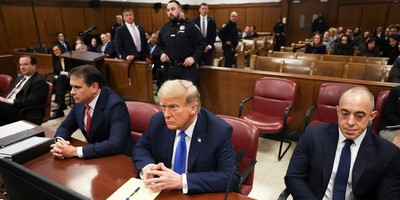Kansas' 2014 race for Senate may be one studied by political scientists for decades to come. For now, it looks as if it'll be a case study in how low-information self-identified independents think the partisan ID next to a candidates name matters more than anything else.
A background: a lot of research has shown that self-identified independent voters and swing voters are only in the middle of the political spectrum because they're low-information voters. The more informed an American is, the more strongly partisan he or she is. A large portion of independent and swing voters are low-information, as Businessweek described in 2012:
[M]any undecideds are so-called low-information voters—they have only a dim awareness of what’s actually going on. The YouGov poll found that just 40 percent could identify John Boehner as the Speaker of the House. In Hart’s focus group, one participant wrongly believed that Romney planned to raise the Social Security eligibility age to 75, another that Obama had erred in not visiting New Orleans immediately after Hurricane Katrina (George W. Bush was president at the time).
The other group of undecided voters, those who haven’t tuned in yet, will draw on an even thinner grasp of politics. They tend not to follow current events and thus don’t respond to the normal methods of persuasion. Brabender calls them “unknowings” and says they can’t be reached by advertising on Fox News or MSNBC. “If you’re watching Fox, you already know who you’re voting for,” he says. This group tends to be younger, concentrated in rural and suburban areas, and more apt to watch prime-time network TV than news shows, which means its members are more expensive to reach through ads.
Recommended
Greg Orman, who previously ran for Senate as a Democrat but is now running as an independent, is winning the self-identified independent vote in Kansas very comfortably:
Independent Greg Orman is doing shockingly well among…who else, but self-described Independents. He’s winning, on average, 54% of their vote. The incumbent lags far behind at an average of 25%. That roughly 30% advantage is larger than most candidates for statewide office in Kansas over the last two decades.
In the most recent CNN/ORC poll, which also had Pat Roberts in a better situation with Orman than previous polls, Orman had an even larger majority with self-described independent voters - 62%. But in that same poll, self-identified Kansas voters strongly disapproved of the job that President Barack Obama is doing as President by a 55%-36% margin.
Mitt Romney won the independent Kansas vote in 2012 51%-43%. Pat Roberts himself won the independent Kansas vote in 2008 50%-45%.
Self-described independent voters, numerous studies have found, are actually mild partisans. It could be the case that independents in Kansas are actually mildly liberal on the whole, and like the idea of an "independent" or center-left-ish candidate like Greg Orman. The independent vote in Kansas is actually larger than the self-described Democratic vote. The CNN poll recently found that 36% of likely voters described themselves as independents.
Still two facts have to grappled with: Republicans have historically won majorities of the independent vote in Kansas, which Roberts is not poised to do; and independents are strongly disapproving of President Obama's job performance.
There's time left, and the late-deciding and low-information independents might realize that the race is between a Republican and a Democrat-in-everything-but-name. It was only in the most recent two polls that Roberts began even winning comfortable majorities of Republicans in Kansas, so it could be that he'll keep making up the difference as the actual reality of the race becomes clearer.
But if Orman wins, it's going to be because he ran as an independent instead of a Democrat. It'll have nothing to do with issues and it'll have nothing to do with the temperature of the electorate. It'll have everything to do with the letters next to the politicians' names and the heuristics used by low-information voters to make decisions.
























Join the conversation as a VIP Member